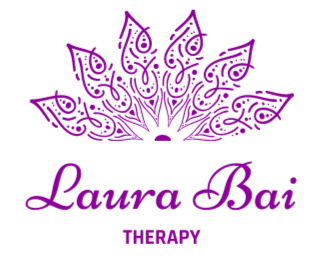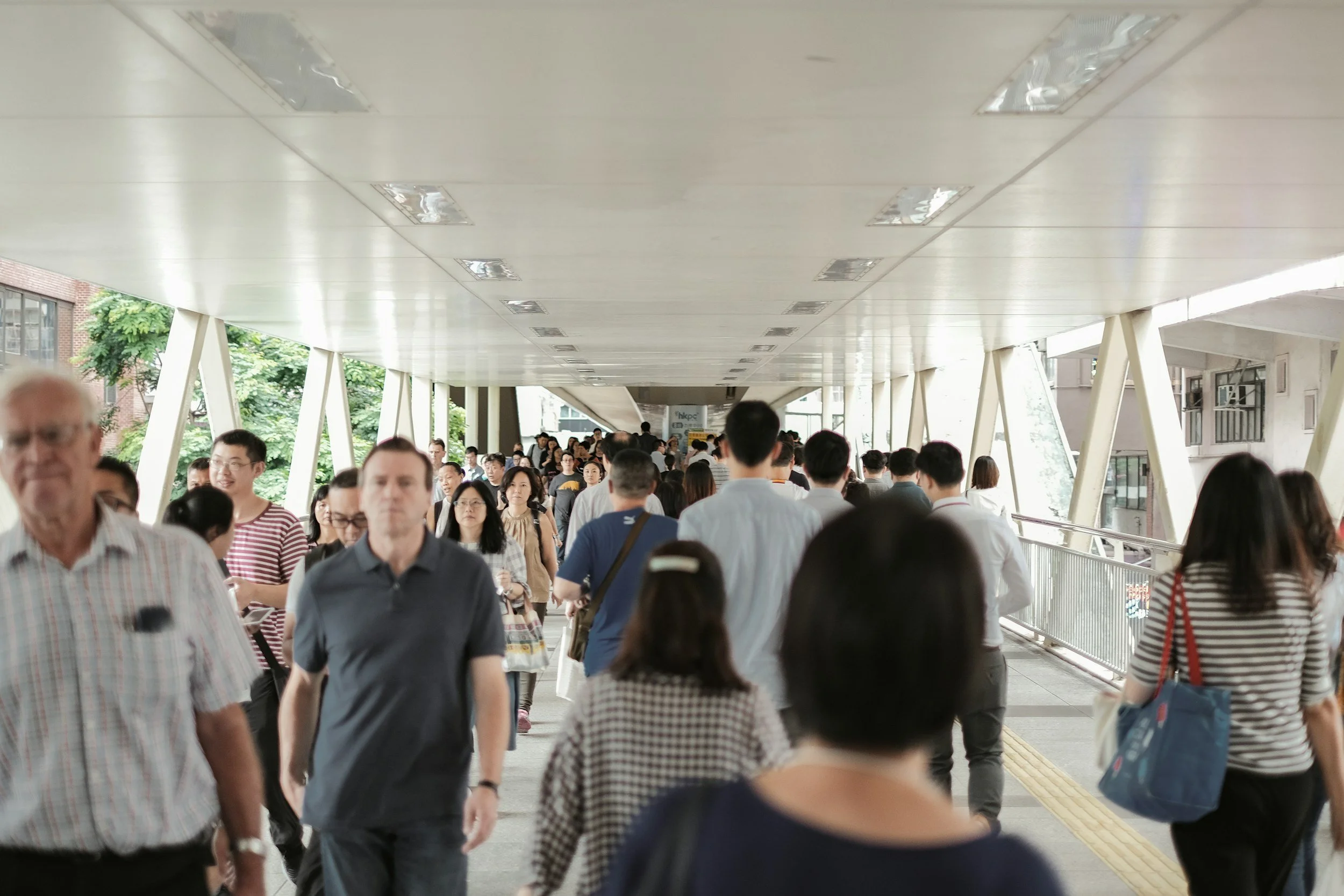
Family Therapy for Asian-American Families
In Oakland, CA
As a family therapist specializing in the Asian-American community, I provide family therapy care designed to address the unique challenges facing immigrant families and their children. My approach combines evidence-based therapeutic approaches with deep understanding of the immigrant experience to help families heal intergenerational trauma, improve communication, and strengthen family relationships.
Specialized Family Therapy for the Asian-American Community
Family therapy is a powerful form of psychotherapy that recognizes how family members influence each other's mental health and wellbeing within the family system. Unlike individual therapy, family therapy addresses the complex family dynamics and family interaction patterns that shape our daily lives, creating lasting change for the entire family.
For Asian-American families, family counseling requires understanding the intersection of cultural values, immigration experiences, and modern pressures. As an immigrant myself, I recognize the unique challenges that second and 1.5 generation Asian-Americans face while navigating family obligations, cultural identity, and personal growth.
My family therapy work focuses on helping families develop healthier communication patterns while honoring the values passed down through generations and strengthening family bonds. Through this therapeutic process, families learn to address mental health struggles like anxiety and depression while building more authentic connections.

Understanding Your Family's Unique Challenges
Intergenerational Trauma and Mental Health
Many Asian-American families carry the weight of intergenerational trauma that affects multiple generations within the family system. This trauma often manifests as anxiety, depression, perfectionism, and relationship conflicts that impact the mental health of all family members.
In my family therapy sessions, I help families understand how historical experiences—whether from war, political upheaval, or the challenges of starting over in a new country—have shaped current family dynamics. The silence around these experiences, while often protective, can create patterns of emotional distance or unexpressed grief that shows up in unexpected ways across generations.
Through systemic family therapy approaches, we work to heal these patterns while creating new legacies of emotional health and connection. This work honors the sacrifices previous generations made while acknowledging that survival strategies that once served the family may now need gentle transformation.
Cultural Identity and Family Expectations
Second and 1.5 generation Asian-Americans often find themselves walking between two worlds—the cultural values of their families and the expectations of American society. This can feel like constantly translating not just language, but entire ways of being, which creates exhaustion and internal conflict.
The pressure to excel academically and professionally while maintaining family harmony can feel overwhelming. Career choices may create tension when personal passions don't align with family security concerns. Relationship decisions can become sources of conflict when individual desires meet traditional expectations about marriage, family roles, or living arrangements.
My therapeutic approaches address these cultural tensions with deep understanding of what it means to love your family while needing to find your own path. I help families navigate conversations about individual growth that don't feel like rejection of family values, and support parents in understanding their children's experiences without feeling that their own sacrifices are being dismissed.
Modern Family Stress and Mental Health Struggles
Today's Asian-American families face unique pressures including caring for aging parents while raising children, managing academic and professional expectations, and maintaining family cohesion in a society that often prioritizes individual achievement over family connection.
The model minority myth adds another layer of complexity, creating pressure to appear successful while making it difficult to seek help or acknowledge struggles. Many families I work with describe feeling like they should be grateful and not complain, even when they're experiencing significant emotional distress.
Through family therapy, I help families develop sustainable approaches to managing these pressures while supporting each other's mental health and wellbeing. We explore how to maintain family closeness without sacrificing individual emotional needs, and how to ask for help in ways that feel culturally comfortable.
My Family Therapy Approach and Therapeutic Methods
Emotionally-Focused Therapy (EFT)
Emotionally-Focused Therapy is one of my primary therapeutic approaches for family work. EFT helps family members understand the emotional patterns driving their interactions, creating space for more authentic emotional expression while respecting cultural values around family harmony.
In our family therapy sessions, I help families identify underlying emotions and needs that often get expressed through conflict or withdrawal. This approach recognizes that in many Asian families, direct emotional expression may feel uncomfortable or unfamiliar, so we work at a pace that feels safe while building new bridges for connection.
Structural Family Therapy
Structural family therapy focuses on understanding and modifying the family structure and organizational patterns within your family system. This approach examines family roles, boundaries, and hierarchies to create healthier family interaction patterns.
Through structural family therapy, I help families identify patterns that may be contributing to mental health struggles or family tension. We work together to restructure interactions in ways that honor generational wisdom while creating space for each person's voice and needs.
Systemic Family Therapy
Systemic family therapy recognizes that family struggles often stem from patterns within the larger family system rather than problems with one family member. This perspective allows us to address root causes and create interventions that benefit the entire family.
I use systemic approaches to help families understand how mental health challenges and relationship conflicts are interconnected, leading to more comprehensive and lasting change in family relationships. This approach particularly resonates with Asian families who already understand the interconnected nature of family wellbeing.
Somatic Therapy and Body-Based Approaches
Trauma and cultural stress often manifest in the body. I incorporate somatic therapeutic approaches to help family members develop awareness of how stress and emotion are held physically, supporting both mental health and physical health.
This body-based work can be especially valuable for families where verbal emotional expression hasn't been encouraged culturally, providing alternative pathways for healing and connection. We might explore how family members carry tension, how cultural stress shows up physically, and gentle ways to release what no longer serves.
Attachment-Focused EMDR
When trauma is present in family systems, I may incorporate Attachment-Focused EMDR to help process difficult experiences while strengthening family bonds. This approach combines trauma processing with building secure attachment relationships within the family.
This can be particularly helpful for addressing immigration trauma, experiences of discrimination, or family histories that include war, loss, or separation. The work honors the strength families have shown while creating space for healing what still hurts.
Parts Work for Family Healing
Parts work recognizes that we all have different aspects of ourselves that developed to help us navigate life's challenges. For many Asian-Americans, there might be a part focused on achievement, another part that tries to maintain family harmony, and another part that longs for individual expression and recognition.
In family therapy, I help each family member understand their internal dynamics while seeing how these parts interact with other family members. This approach is particularly helpful for addressing perfectionism, anxiety, and relationship conflicts that affect family harmony and individual mental health.

Mental Health Struggles and Family Patterns I Address
Anxiety and Depression
Anxiety and depression frequently affect multiple family members and can be both a cause and result of family dysfunction. These struggles often stem from the pressure to succeed, the weight of family expectations, and the stress of navigating multiple cultural worlds.
My family therapy work helps families understand how these mental health struggles impact family relationships while developing supportive patterns that promote healing. Through family counseling, families learn communication skills, boundary-setting techniques, and family rituals that support emotional health for all family members.
Relationship Conflicts and Communication Challenges
Communication difficulties are common in families where direct conflict may be avoided to maintain harmony, but unexpressed feelings can create emotional distance or explosive arguments. Many families describe feeling like they're walking on eggshells or that important things never get discussed.
Through family therapy, I help families develop communication skills that honor cultural values around respect while allowing for authentic expression. Family therapy sessions focus on learning how to disagree respectfully, developing active listening skills, and creating regular family conversations where every family member's voice is heard.
Caretaking, Codependency, and Burnout
Many Asian-American families navigate complex caretaking responsibilities that can lead to burnout and resentment. Adult children may feel caught between caring for aging parents and their own families, while parents may struggle with accepting help or feeling like a burden.
Family therapy focuses on developing healthy interdependence rather than patterns where one person carries too much responsibility. We explore how to ask for and provide emotional support, and how to create family systems that prevent caretaker burnout while honoring cultural values around family loyalty.
Perfectionism and Achievement Pressure
Many Asian-American families struggle with perfectionist patterns that can lead to burnout, anxiety, and relationship conflicts. The pressure to excel can become so intense that family members lose touch with their own interests, needs, and sense of inherent worth.
I work with families to understand how perfectionism has served them—often as a survival strategy or way to honor family sacrifices—while exploring more balanced approaches to achievement that support mental health. This work involves helping families separate personal worth from achievement and creating space for individual paths that may differ from traditional expectations.
Guilt, Shame, and Family Obligations
Feelings of guilt and shame can be pervasive in Asian-American families, often stemming from messages about family duty, filial piety, and proper behavior. The fear of disappointing parents or bringing shame to the family can become paralyzing, affecting major life decisions and daily emotional wellbeing.
My family therapy work helps families examine these feelings with compassion while developing healthier approaches to family obligations. This therapeutic process involves understanding the difference between healthy responsibility and unhealthy guilt, setting appropriate boundaries, and finding ways to honor both individual wellbeing and family connection.
Disconnection and Dissociation
When families have experienced trauma or ongoing stress, family members may cope by disconnecting emotionally. This might look like being physically present but emotionally unavailable, or feeling numb during family interactions.
Through family therapy, I help families understand these patterns as protective responses while developing tools for staying present and connected. This work might involve somatic practices for staying grounded, communication skills for maintaining connection during difficult conversations, and family activities that promote genuine bonding among family members.
What to Expect from Family Therapy Care with Laura Bai Therapy
Your Free Initial Conultation
I begin with a free 20-minute consultation where we discuss your family's specific mental health needs and goals. This conversation helps me understand your family dynamics and determine whether my therapeutic approaches would be a good fit for your situation.
During this consultation, you can ask questions about my background, my work with Asian-American families, and what you can expect from the therapeutic process. I'll explain how we can work together to create positive change for your entire family, and you can get a sense of whether you feel comfortable working with me.
Your First Family Therapy Session
In our first session, you'll complete standard documentation through my client portal, and we'll spend time understanding your family's presenting concerns, goals for family therapy, and relevant history that informs our work together.
This session is designed to feel welcoming and comfortable, recognizing that starting therapy sessions can feel vulnerable, especially when cultural factors might make seeking help feel complicated. My goal is to create a supportive environment where every family member feels seen and understood, without judgment about family struggles or dynamics.
Ongoing Family Therapy Sessions
Therapy sessions are generally scheduled weekly or bi-weekly at consistent times and can be rescheduled as needed. The frequency depends on your family's specific needs and goals, and we adjust this as we progress through the therapeutic process.
I may assign homework assignments between sessions to help reinforce new skills and practice them in your daily family life. These assignments are tailored to your family's situation and designed to support your mental health goals while feeling manageable and relevant to your family's culture and values.
Both Online and In-Person Options Available
I offer both in-person family therapy sessions in Oakland and online family therapy to provide maximum accessibility. Online family therapy has proven highly effective, offering families the comfort of participating from home while maintaining the same quality of family counseling.
Online therapy sessions can be particularly helpful for busy families, those with transportation challenges, or families who prefer the privacy and comfort of their own space. My digital platform maintains strict confidentiality and security standards throughout the therapeutic process.
The Benefits of Understanding Asian-American Family Experiences
Deep Understanding of Immigration and Identity
My background as an immigrant allows me to understand the unique challenges Asian-American families face beyond what textbooks can teach. I recognize the complexity of navigating multiple cultural identities, the weight of family sacrifices, and the particular ways mental health struggles manifest in our communities.
This understanding informs every aspect of my family therapy work, from how I conceptualize problems to the therapeutic intervention choices I make. I can help families honor their cultural values while creating space for individual growth and healing, recognizing that these don't have to be in conflict with each other.
Addressing Intergenerational Patterns with Respect
Many family struggles facing Asian-American families have roots going back generations. The ways our parents and grandparents learned to survive and protect their families may create patterns that no longer serve the current generation, but changing them can feel like betraying family history.
Through family therapy, we begin to understand and heal these patterns while creating new legacies for future generations within the family system. This work honors the strength and resilience that immigrant families have shown while acknowledging that some survival strategies may need gentle transformation as circumstances change.
Creating Lasting Change Through Family Support
Family therapy creates change that extends beyond individual symptoms to transform patterns and dynamics that shape daily family life. When families learn new ways of communicating and supporting each other, these changes impact every aspect of their lives.
For Asian-American families, this might mean developing communication styles that honor cultural values around respect while allowing authentic emotional expression, or creating family traditions that celebrate both heritage and individual interests. The goal is integration rather than choosing between cultural identity and personal growth.
Specialized Care for Different Family Configurations
Individual Family Therapy
While my focus is family therapy, I also work with individuals dealing with family-related mental health struggles. This approach recognizes how family dynamics affect individual wellbeing and how personal healing contributes to healthier family relationships.
Individual sessions can complement family therapy or serve as a starting point for those not yet ready for full family involvement in the therapeutic process. This can be particularly helpful when family members have different levels of readiness for change or when cultural factors make family therapy feel initially overwhelming.
Couples Therapy Within Family Systems
Many relationship conflicts within Asian-American families stem from cultural pressures, family-of-origin patterns, and the stress of balancing individual relationship needs with extended family expectations. My couples therapy work addresses these factors while helping partners develop stronger communication and intimacy.
Couples therapy often involves understanding how extended family dynamics affect the relationship and developing strategies for maintaining couple connection while navigating family obligations. This work recognizes that in many Asian cultures, marriage involves not just two individuals but two families, requiring sensitive navigation of multiple relationships.
Multi-Generational Family Work
I frequently work with multiple generations in family therapy sessions, recognizing that healing often requires involving grandparents, parents, and adult children. This approach addresses family patterns across generations while respecting cultural hierarchies and values around elder respect.
Multi-generational family therapy can be particularly powerful for addressing intergenerational trauma and creating new patterns of communication that benefit everyone involved. This work honors the wisdom of elders while creating space for younger generations to express their experiences and needs.

Ready to Begin Your Family's Healing Journey?
If your family is struggling with mental health challenges, relationship conflicts, or the pressures of navigating cultural expectations while pursuing individual growth, family therapy can provide a pathway to healing and stronger connections. My approach recognizes that every family is unique, and I work collaboratively to develop personalized support that honors your specific needs and values.
Family therapy requires courage and commitment, but it can transform your family's present experience while creating new patterns that benefit future generations. Many families find that even small changes in communication and understanding create significant improvements in overall mental health and family harmony.
Taking the first step toward family therapy can feel overwhelming, especially when cultural factors make seeking help feel complicated. I'm here to support your family through this therapeutic process with warmth, understanding, and respect for your cultural background and family history.
Reach Out Today
Every family deserves the opportunity to heal, grow, and thrive together. With compassionate care and evidence-based therapeutic approaches, your family can build stronger, more connected relationships while honoring the values and heritage that matter most to you.
For more information about scheduling your free consultation and beginning your family's healing journey, I encourage you to reach out today. Your family's mental health and harmony are worth investing in, and I'm here to support you every step of the way through this transformative therapeutic process.













